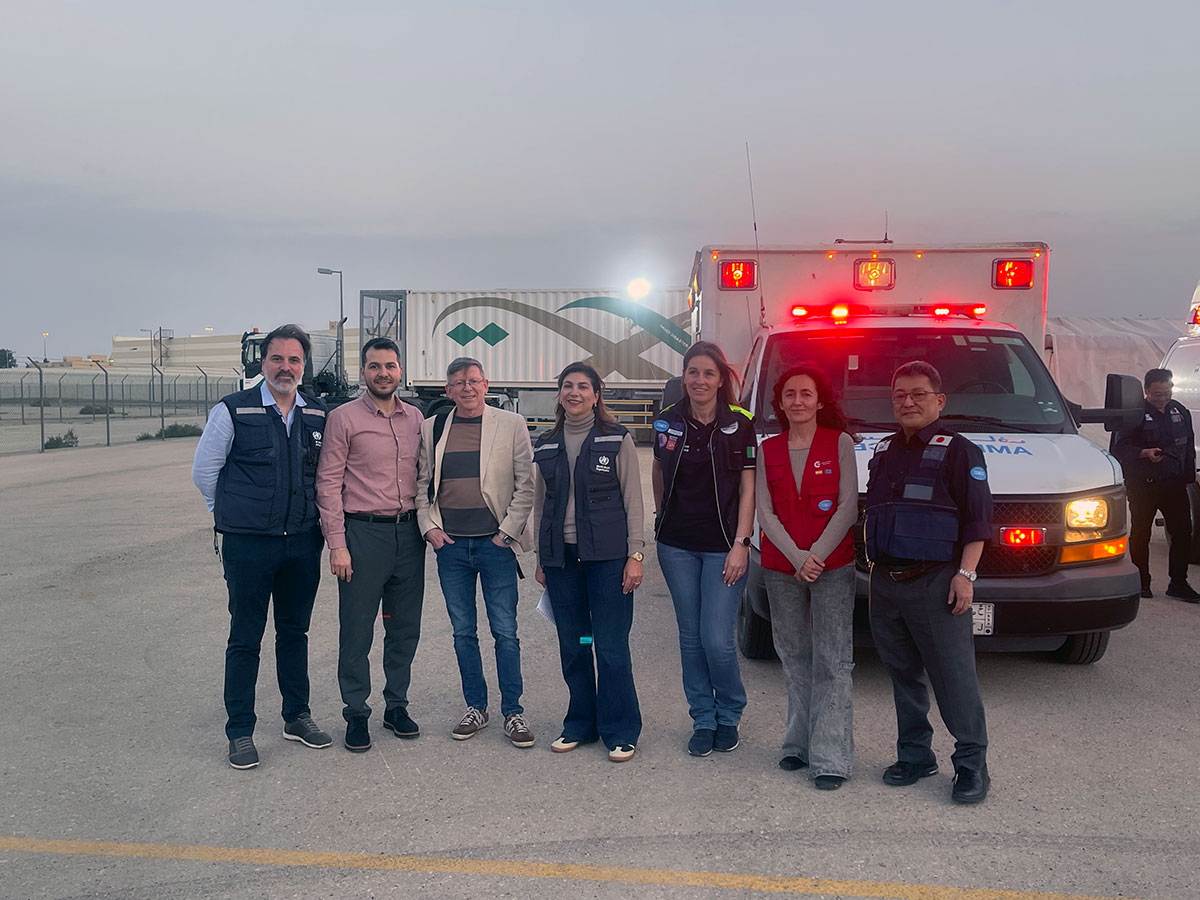
23 March 2025, Cairo, Egypt – On 12 March 2025, the World Health Organization (WHO)classified the Saudi Disaster Medical Assistance Team (SDMAT) as an Emergency Medical Team (EMT) Type 2.
The classification reflects SDMAT’s unwavering dedication and exceptional capabilities in disaster response and emergency medical care. The announcement followed a rigorous final verification visit to Riyadh. From 10 to 12 March 2025, SDMAT underwent peer-to-peer assessments by 3 independent verifiers from classified EMTs in Spain (START EMT2), Japan (JDR) and Italy (ITA EMT2 – Toscana), and evaluations from the EMT Focal Point at the WHO Regional Office for the Eastern Mediterranean and the EMT Network Leader from WHO headquarters.
The global classification was a result of rigorous training, strict adherence to international standards and a commitment to continuous improvement. SDMAT's dedication to ensuring the highest quality of medical assistance is provided during emergencies serves as a model for EMTs across the Eastern Mediterranean Region.
Key pillars of SDMAT's success
Comprehensive training
SDMAT implemented extensive training programmes, equipping team members with the skills to handle any emergency. Programmes covered a wide range of topics, from disaster response strategies and emergency medical care to the application of advanced medical technologies.
Strategic collaboration
Recognizing the power of partnerships, SDMAT has fostered strong collaborations with national and international organizations, including WHO. These alliances proved instrumental in sharing knowledge, pooling resources and adopting best practices, ultimately strengthening the team’s effectiveness in the field.
Innovative approaches
SDMAT embraced innovation, incorporating cutting-edge medical technologies and methodologies into their disaster response strategies. This included the implementation of advanced diagnostic radiology standards in field hospitals and the utilization of electronic platforms for efficient data flow and analysis.
Effective field operations
SDMAT’s active involvement in field operations and deployments has demonstrated the team’s ability to provide critical medical assistance in disaster-affected areas. The team’s swift and coordinated responses have saved lives and alleviated suffering in communities impacted by emergencies.
Supporting regional preparedness
SDMAT has played a central role in supporting national and regional events, including mass gatherings like the Hajj pilgrimage, by implementing capacity-building programmes and disaster simulation exercises. The team’s expertise has contributed significantly to the overall preparedness and resilience of health systems across the Region.
Global recognition: meeting the highest standards
Global classification by WHO as an EMT Type 2 recognises the team’s abiliity to provide a range of advanced clinical care and its meeting of the stringent minimum standards outlined in the EMT Blue Book (WHO’s comprehensive guidelines for the classification and quality assurance of emergency medical teams). The team is fully equipped to provide inpatient surgical emergency care, positioning them as a vital asset in international disaster response efforts.
A vision for the future
With this global classification, SDMAT is poised to play an even more significant role in international disaster response. The team’s achievement serves as an inspiration to other EMTs in the Eastern Mediterranean Region, underlining how dedication, collaboration and innovation can lead to excellence in emergency medical care.
A legacy of preparedness and collaboration
SDMAT’s success highlights the importance of preparedness, training and collaboration in building resilient and effective emergency medical teams. As SDMAT continues to lead disaster medical assistance by example, it is paving the way to a safer and more responsive future.


